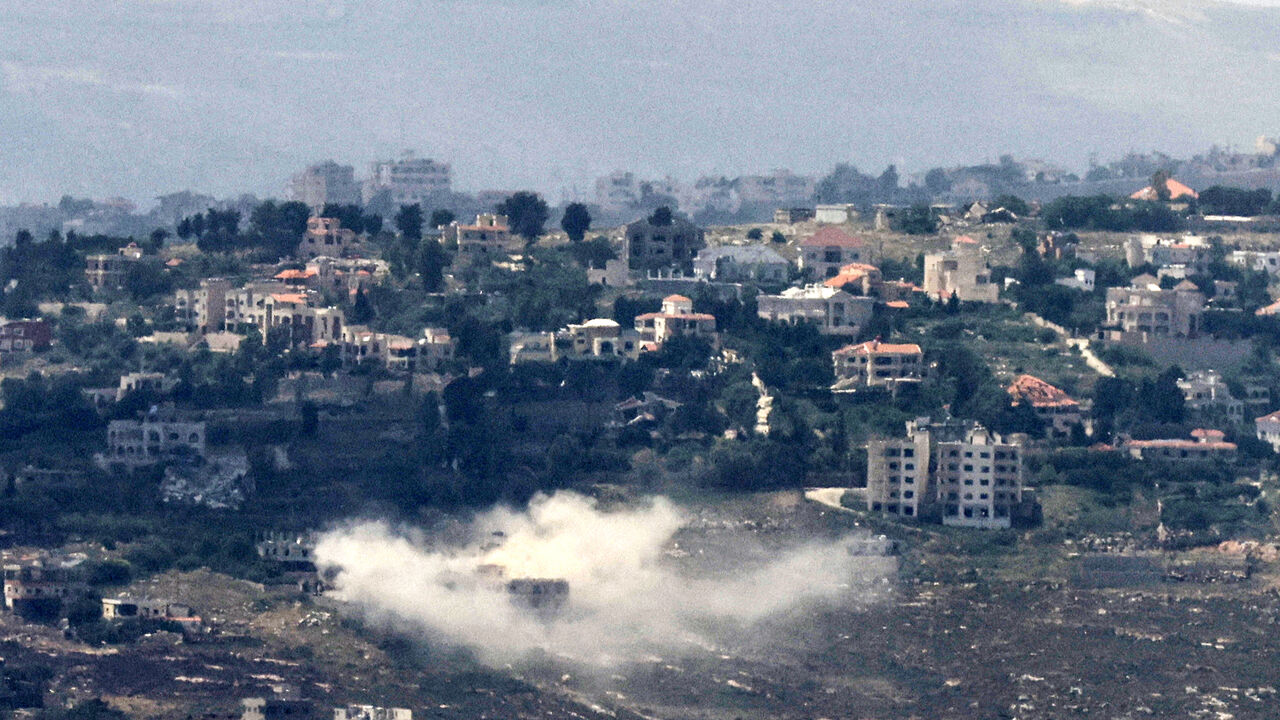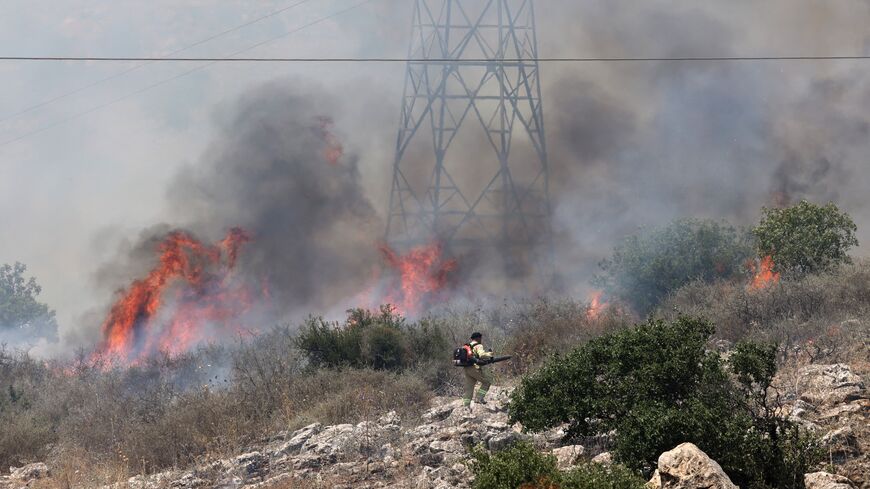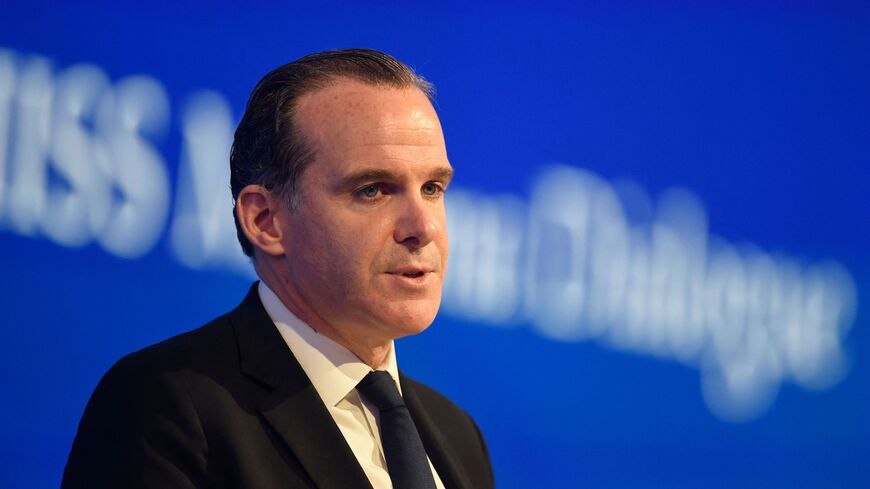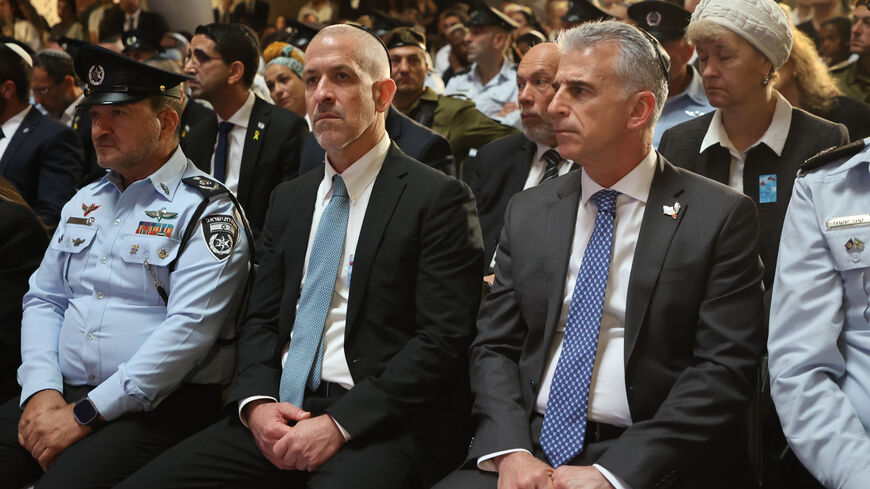Israel threatens 'intense operation' near Lebanon as Qatar hosts Gaza talks
Israel’s war cabinet is set to convene Thursday evening to discuss the escalation in the north with Hezbollah.

Israel’s war cabinet was set to convene Thursday, after a series of drone attacks targeting Upper Galilee region injured at least 11 people and as the country's prime minister, Benjamin Netanyahu, said preparation is underway for a "very intense" operation.
On Thursday morning, Israel's Ynet and channel 12 reported that the war cabinet meeting was canceled.
The Israeli military said it was investigating why the alarm did not sound when the drones entered Israel’s aerial space and why no interception took place. A preliminary investigation showed that the projectiles were fired in intervals. A few hit a football field in the Druze village of Horfeish.
Netanyahu arrived Wednesday in Kiryat Shmona, near the border with Lebanon, to inspect the situation but did not meet with local officials
"We are prepared for a very intense operation in the north. One way or another, we will restore security to the north," Netanyahu said during the visit.
Head of the Israeli opposition Yair Lapid also visited the northern border region on Wednesday, saying that "the state of Israel has been abandoned by its government and must be replaced ... Netanyahu was here for five minutes, had his picture taken and left."
On Wednesday a report by Human Rights Watch accused Israel of using white phosphorus munitions in multiple locations across south Lebanon since October of last year. The use of such munitions is considered illegal under international humanitarian law.
“Israel’s widespread use” of the chemical substance “is putting civilians at grave risk and contributing to civilian replacement,” the report said. The global human rights group documented white phosphorus use by Israel in at least 17 municipalities in Lebanon’s south, five of which involved munitions that hit residential buildings.
Washington warned on Wednesday against further escalation in Lebanon. "We continue to pursue a diplomatic resolution because we don't want to see that escalation of the conflict which would just lead to further loss of life from both Israelis and the Lebanese people and would greatly harm Israel's overall security and stability in the region," State Department spokesperson Matthew Miller said.
Talks in Qatar continue
Escalating tensions on Israel’s border with Lebanon come as contacts continue to reach a deal between Israel and Hamas for the release of the hostages and a cease-fire in Gaza. CIA Chief William Burns arrived Tuesday in Doha, and the White House's top Middle East adviser, Brett McGurk, arrived on Wednesday to Cairo to coordinate with the mediating parties on a push for a deal.
Qatari Prime Minister Mohammed al-Thani and Egyptian intelligence chief Abbas Kamel met in Doha on Wednesday with senior Hamas officials to discuss the Israeli proposal, reported Axios, adding that representatives of Hamas and of other Palestinian factions like the Islamic Jihad are expected to arrive to Cairo later this week for additional talks.
Channel 12 reported that during a closed-door discussion on Tuesday, war cabinet ministers Benny Gantz and Gadi Eisenkot insisted that Israel must strive for a deal with Hamas to be able to focus its attention on the campaign in the north.
Far-right Israeli ministers Itamar Ben-Gvir and Bezalel Smotrich both objected to the deal earlier this week, saying that Prime Minister Benjamin Netanyahu did not inform them of the details of the outline proposed. Both also said they will not continue to work in the government should the deal with Hamas be reached.
More than 70 demonstrations took place across Israel on Wednesday, calling on the government to approve a deal for the release of hostages. On Wednesday evening hundreds of people joined the daily demonstration of families of hostages outside the headquarters of the defense ministry at the center of Tel Aviv.
This developing story has been updated since initial publication.








